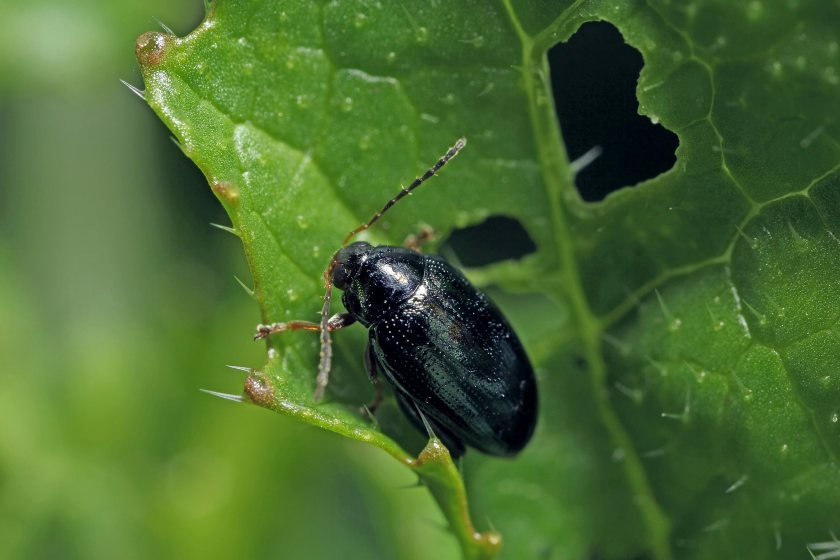
Using silicon-based biostimulants alongside later planting has emerged as an effective tactic to protect oilseed rape (OSR) crops from cabbage stem flea beetle (CSFB) damage, according to new trial results.
Biostimulant specialist Orion FT trialled the approach using two of its silicon products, Deneb and Sirius, on hybrid OSR varieties RGT Black Moon and RGT Paparazzi.
The treated crops showed stronger establishment, wider stems and reduced pest damage – key markers of resilience against CSFB pressure.
Kate Finlayson, Orion’s research agronomist, said: “Using vigorous, fast establishing hybrids that are better suited to late drilling is becoming more popular. However, the threat of CSFB does not diminish entirely for those looking to delay.
“Our trial showed OSR that was treated with silicon established thicker and wider stems and a thicker cuticle that made the plant less appealing to CSFB.”
Late planting aims to reduce larval pressure by delaying crop emergence until after adult beetles have laid their eggs.
Cooler autumn conditions also help to slow beetle development. While this approach alone offers some benefits, the trials suggest that supplementing with biostimulants can further enhance crop resilience.
“Planting later increases the risk that plants will not establish fast enough to endure early cold weather,” Ms Finlayson explained.
“Biostimulants help mitigate this risk by helping OSR to take up more nutrients faster. Silicon helps to improve the nutrient availability in OSR, enabling the plant to establish faster with stronger stems and deeper seeking roots.”
Trial data showed that OSR treated with Deneb at 0.25 l/ha and 0.5 l/ha resulted in stem width increases of 38% and 56% respectively after two and four weeks.
While the average CSFB damage remained similar across both rates, the higher dose produced a narrower range of beetle damage after four weeks, indicating improved consistency.
The benefits of silicon biostimulants go beyond flea beetles, Ms Finlayson noted. “It is not just flea beetle damage that silicon helps with. We have carried out similar trials with slugs which also saw a significant reduction in plant damage.
"By making OSR stronger using biostimulants it helps to toughen and thicken the cuticle and increase leaf hair density. It also increases phytoliths in the plant which make it less attractive to insect herbivory.”
With CSFB continuing to pose a challenge for growers and chemical options increasingly limited, combining late planting with biological support could be a game-changing strategy.
“Planting late is emerging as a good strategy in the UK, but OSR establishment can be boosted by biostimulants to help it against pests and to establish faster to stand up to cold and challenging growing conditions,” Ms Finlayson concluded.
